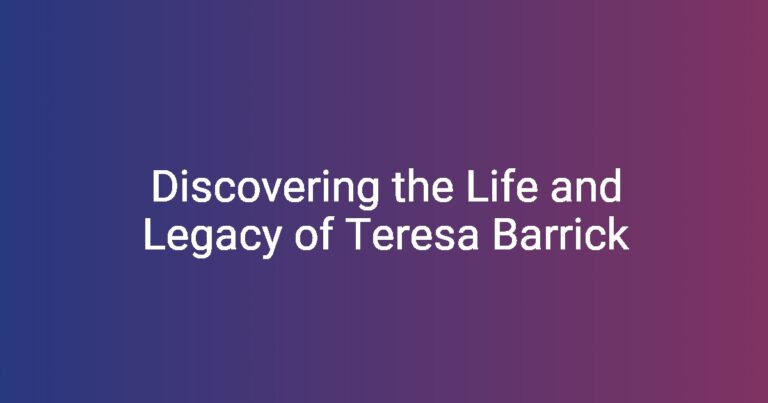Nudism, often termed as naturism, is more than a practice; it is a cultural and lifestyle choice that champions the acceptance of one’s body and fosters a deep connection with nature. Historically, nudism can be traced back to various ancient cultures that recognized the benefits of living freely and embracing the human form without shame. The philosophy revolves around the belief that being nude brings a sense of liberation, encouraging individuals and families alike to promote body positivity and self-acceptance.
The purpose of this article is to delve into the unique lifestyle of a nudist family, shedding light on the misconceptions that often surround this community. By understanding what it means to be part of a nudist family, we can appreciate the benefits this lifestyle offers, as well as acknowledge the challenges faced by families who choose this path.
The Philosophy of Nudism
Core Principles of Nudism
At the heart of the nudist philosophy lie several core principles that define the lifestyle. Chief among them is the acceptance of the body. Nudism promotes the idea that all bodies, regardless of shape, size, or imperfections, are natural and deserving of respect. This acceptance not only empowers individuals but also nurtures a sense of community.
Another crucial tenet of nudism is naturalism, which emphasizes a connection to the earth and the environment. Many nudists find joy in outdoor activities, relishing the freedom of being in tune with nature, unhindered by the constraints of clothing.
Benefits of Nudism
The benefits of being a part of a nudist family are numerous and enriching. Families that embrace nudism often report heightened feelings of body positivity and self-acceptance. This liberation from societal norms can foster stronger family bonds through shared experiences, such as family outings to nudist beaches or resorts, where fun is had without the perceptions tied to clothing.
Being a nudist encourages a sense of openness and honesty within the family unit, breaking down barriers that are often upheld by a culture focused on appearance. It teaches children invaluable lessons about the human body and respect for others, forging a comprehensive understanding that nudity is not inherently sexual but rather a natural state.
Raising a Nudist Family
Introduction to Nudism for Families
Bringing children into the world of nudism requires thoughtful discussion and a gentle introduction. When broaching the topic, clarity is essential—explaining the values of acceptance and freedom could help children to understand nudism at a young age. Parents should consider age factors regarding how nudity is perceived and how children can appropriately engage in nudism.
Understanding nudity depends largely on societal conditioning. While children are typically innocent regarding body image, parental guidance can navigate discussions around nudity, promoting a healthy mindset toward their own bodies and those of others.
Creating a Supportive Environment
Creating a supportive environment for a nudist family incorporates various practical steps. Choosing nudist-friendly spaces—such as beaches, resorts, or campsites—allows families to feel comfortable without judgment. Additionally, establishing a respectful home environment that embraces nudism can significantly affect the family’s overall experience. A designated nudist-friendly space at home can empower children and family members to feel secure and liberated in their skin.
Family Activities as a Nudist Family
Outdoor Activities
Outdoor activities are a cornerstone of the nudist lifestyle. Camping and hiking offer exhilarating experiences while allowing families to enjoy nature in its purest form. Freedom to roam without clothes fosters a sense of connection with the environment, enhancing the overall enjoyment of these activities.
Beach outings and water sports also provide ideal opportunities for nudist families. Whether it’s a day at a nudist beach or a naturist-friendly swimming pool, these activities create lasting memories that families cherish.
Home-Based Activities
At home, nudist families can engage in numerous activities that support body awareness and family connection. From family game nights to educational projects surrounding body positivity, the home becomes a safe haven for nudism.
Projects such as art that focuses on the human form can inspire children and promote discussions about body image, instilling confidence and self-acceptance.
Social and Community Events
Joining nudist clubs and participating in community gatherings allows families to connect with like-minded individuals. These social events encourage interactions with other nudist families, fostering bonds and friendships that enrich the nudist experience.
Community gatherings often include activities such as potlucks, group hikes, or yoga in the park, all designed to embrace the nudist philosophy in a family-friendly manner.
Navigating Social Perceptions
Common Misconceptions about Nudism
One of the most significant challenges faced by nudist families is overcoming common misconceptions. A predominant myth is the confusion of nudism with sexual exhibitionism. It is essential to clarify that nudism is a lifestyle focused on body acceptance and freedom rather than sexual expression.
Addressing fears related to nudism, particularly within families or communities that do not understand the lifestyle, can help alleviate concerns and promote acceptance.
Communicating with Outsiders
When discussing nudism with friends and family who may not share the same values, it’s important to communicate openly. Sharing personal experiences can provide insights into the nudist lifestyle. Strategies for handling criticism may include preparing thoughtful responses to address common questions or concerns, emphasizing that nudism fosters a sense of openness, respect, and freedom.
Legal and Ethical Considerations
Understanding the Legal Landscape
The legalities surrounding nudism vary significantly across regions. It is crucial for families to understand local laws regarding nudity and naturism to ensure they maintain respect and integrity while engaging in nudist activities.
Adhering to these laws not only protects the family but also promotes a positive image of nudism in society.
Maintaining Ethics and Safety
Establishing boundaries is vital within a nudist family. Education regarding consent and respect must be instilled in children at a young age. Understanding the importance of personal space and comfort levels is key to enjoying a safe and respectful nudist lifestyle.
The Health and Psychological Benefits
Mental Health Advantages
The mental health advantages of an nudist family are profound. Many families report a reduction in anxiety and insecurity surrounding body image after embracing nudism. This lifestyle promotes a positive self-image in children, encouraging them to embrace their individuality and unique characteristics.
By removing the stigma surrounding nudity, nudist families can cultivate a sense of confidence and mental well-being that extends beyond their nudist experiences.
Physical Benefits
The physical benefits of nudism are equally compelling. Connecting with nature offers holistic benefits, including reduced stress and increased happiness. Encouraging outdoor activity and active lifestyles, nudism nurtures both physical and mental aspects of health.
Challenges Faced by Nudist Families
Cultural Stigmas
Cultural stigmas surrounding nudism can pose significant challenges for nudist families. Societal pressures and stigma from non-nudist communities can lead to feelings of isolation. It’s essential for families to foster a strong sense of identity and support, allowing them to navigate these challenges with confidence.
Family Dynamics and Comfort Levels
Within a nudist family, varying comfort levels may exist. Open communication is essential for ensuring everyone feels included and comfortable in the nudist lifestyle. Parents should continuously reassess their approach, ensuring that the nudist experience remains positive for every family member.
Conclusion
Reflections on the nudist lifestyle reveal a world of freedom and acceptance. Understanding the ethos of nudism can pave the way for a healthy mindset surrounding nudism for children. It encourages families to embrace and celebrate diversity in body shapes, sizes, and lifestyles, promoting harmony and unity.
Encouraging open-mindedness allows readers to consider alternative lifestyles, appreciating their potential benefits. Acceptance of diverse family structures and choices may challenge societal norms, ultimately fostering a more inclusive community.
Resources
Recommended Books and Publications
– *Nudism for Families: A Guide to Naturism for Parents and Children*
– *Body Positivity: Embracing the Human Form*
Nudist Organizations
– [American Association for Nude Recreation](https://www.aanr.com)
– [Naturist Society](https://naturistsociety.com)
Call to Action
We invite readers to share their experiences or views on nudism. Engaging in discussions around the topic can foster better understanding and acceptance. Please leave your feedback or questions in the comments section below to encourage further exploration of this lifestyle.
| Aspect | Description |
|---|---|
| Core Principles | Acceptance of the body, connection to nature |
| Benefits | Body positivity, freedom from societal norms |
| Family Activities | Outdoor activities, home-based projects, social events |
| Challenges | Cultural stigma, comfort levels within families |
| Health Benefits | Mental and physical advantages, connection to nature |
Frequently Asked Questions (FAQs)
1. Is nudism legal everywhere?
While nudism is embraced in many communities worldwide, legal status varies by region. It is essential to research local laws regarding nudity.
2. How do you introduce nudism to children?
Start with gentle discussions about body positivity and respect, ensuring that children feel comfortable and safe.
3. Is nudism only for adults?
No, nudism is suitable for families and can be a healthy choice for children as well, encouraging a positive body image from an early age.
4. What should we consider when visiting nudist resorts?
Research the resort’s rules, respect boundaries, and engage only in activities that everyone in the family feels comfortable with.
5. How can we handle negative reactions from others?
Communicate openly about nudism’s values, and prepare responses to address misconceptions while emphasizing personal values.
6. Are there social benefits to being a nudist family?
Yes, engaging in nudist communities fosters friendships and connections with like-minded families, enriching social experiences.
7. What if some family members aren’t comfortable with nudism?
Respect individual comfort levels, and consider creating a space where everyone can engage at their own pace.
8. Can nudism positively impact mental health in children?
Absolutely! Nudism often helps children develop a healthier self-image and reduce anxiety related to body image.
9. Are there themed nudist events for families?
Yes, many nudist communities host family-friendly events, encouraging participation through games and activities.
10. How do we navigate public perception as a nudist family?
Acts of open-mindedness, respectful engagement, and clear communication can help dispel myths and promote understanding.








